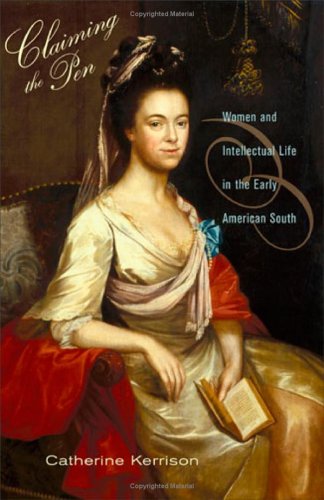

Most ebook files are in PDF format, so you can easily read them using various software such as Foxit Reader or directly on the Google Chrome browser.
Some ebook files are released by publishers in other formats such as .awz, .mobi, .epub, .fb2, etc. You may need to install specific software to read these formats on mobile/PC, such as Calibre.
Please read the tutorial at this link: https://ebookbell.com/faq
We offer FREE conversion to the popular formats you request; however, this may take some time. Therefore, right after payment, please email us, and we will try to provide the service as quickly as possible.
For some exceptional file formats or broken links (if any), please refrain from opening any disputes. Instead, email us first, and we will try to assist within a maximum of 6 hours.
EbookBell Team

4.7
56 reviewsIn 1711, the imperious Virginia patriarch William Byrd II spitefully refused his wife Lucy's plea for a book; a century later, Lady Jean Skipwith placed an order that sent the Virginia bookseller Joseph Swan scurrying to please. These vignettes bracket a century of change in white southern women's lives. Claiming the Pen offers the first intellectual history of early southern women. It situates their reading and writing within the literary culture of the wider Anglo-Atlantic world, thus far understood to be a masculine province, even as they inhabited the limited, provincial social circles of the plantation South.
Catherine Kerrison uncovers a new realm of female education in which conduct-of-life advice―both the dry pedantry of sermons and the risqué plots of novels―formed the core reading program. Women, she finds, learned to think and write by reading prescriptive literature, not Greek and Latin classics, in impromptu home classrooms, rather than colleges and universities, and from kin and friends, rather than schoolmates and professors. Kerrison also reveals that southern women, in their willingness to "take up the pen" and so claim new rights, seized upon their racial superiority to offset their gender inferiority. In depriving slaves of education, southern women claimed literacy as a privilege of their whiteness, and perpetuated and strengthened the repressive institutions of slavery.